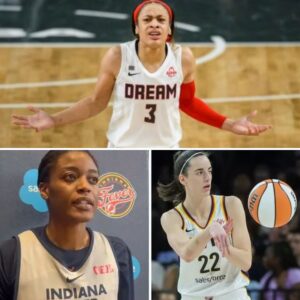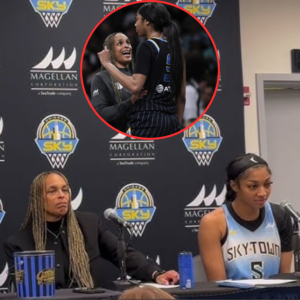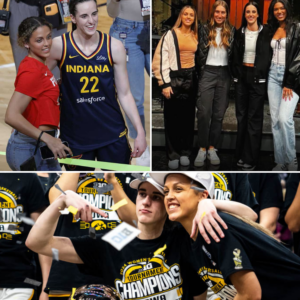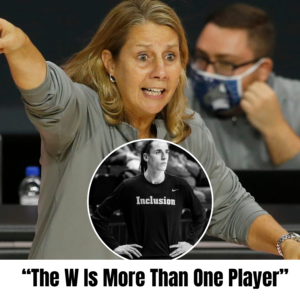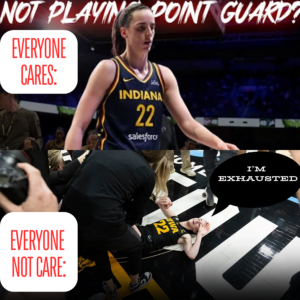The Caitlin Clark effect is evident once more. Her presence led to a remarkable 307 percent surge in viewership for the 2024 WNBA Draft, which drew 2.446 million viewers to ESPN’s coverage at the Brooklyn Academy of Music, according to Sportico. Much of this increase can be attributed to the anticipation surrounding Clark’s selection as the first overall pick by the Indiana Fever.
For the first time, the women’s league draft attracted over 1 million viewers, surpassing the viewership of both the MLB and NHL drafts in 2023, according to Austin Karp of Sports Business Journal. The previous WNBA draft record was set 20 years ago, with 601,000 viewers tuning in to witness Diana Taurasi being selected first by the Phoenix Mercury.
Tuesday’s draft showcased a multitude of women’s basketball stars, contributing to the substantial audience. Notable selections included Stanford’s Cameron Brink, picked second overall by the LA Sparks, and national champion Kamilla Cardoso and LSU standout Angel Reese, chosen by the Chicago Sky with the third and seventh overall picks, respectively.
However, it was Clark who stole the spotlight, as she has consistently done throughout her final year at Iowa.
Here’s the scoop on Caitlin Clark and her WNBA salary surprise.
Caitlin Clark, college basketball’s all-time leading scorer and the newly recognized face of the WNBA, predictably secured the No. 1 spot in the draft to the Indiana Fever.
Despite not yet stepping onto the court, Clark has swiftly emerged as one of the WNBA’s most prominent figures. Her selection in the first round contributed to a remarkable 304% surge in draft viewership this week. However, discussions surrounding Clark did not cease upon her signing a four-year deal with the Indiana Fever.
Under the league’s collective bargaining agreement, Clark is set to earn $338,056 over four years with the Indiana Fever. This figure stands in stark contrast to the top pick in the 2023 NBA draft, Victor Wembanyama, who landed a $55 million deal.
During the “Today” show on Tuesday, television personality Hoda Kotb openly expressed her dismay over the significant pay gap. She labeled it as “ridiculous” and “disturbing,” emphasizing the disparity in compensation.
Former ESPN journalist and current contributor to The Atlantic, Jemele Hill, echoed similar sentiments, criticizing the ongoing discourse surrounding WNBA salaries. Hill condemned the comparison between WNBA and NBA salaries, emphasizing the historical disparities in investment, media coverage, and overall recognition. She urged support for WNBA players through merchandise purchases, attendance at games, and viewership, rather than belittling their worth and perpetuating misogyny.
During Iowa’s journey to the national championship game, Caitlin Clark was a key figure in the three most-watched women’s college basketball games. The Hawkeyes’ Elite Eight triumph against LSU attracted a then-record 12.3 million viewers, which was later surpassed by their Final Four victory over UConn, drawing 14.2 million viewers.
Clark concluded her college career with the most-watched women’s basketball broadcast, as 18.7 million viewers tuned in to the national championship game between Iowa and South Carolina. The broadcast reached its peak at 24 million viewers.
These ratings offer a promising sign for the WNBA, which anticipates heightened interest in the league with the addition of Clark, Reese, Cardoso, Brink, and other standout players next season.
The draft ratings marked the highest viewership for any WNBA televised event in 23 years, surpassing the 2.74 million viewership average for a 2000 game between the Liberty and Comets on NBC, according to Sports Media Watch.
Embracing Clark Mania, the league plans to broadcast 36 of the Fever’s 40 games nationally in the 2024 season.
The 22-year-old phenom had an extraordinary senior season with the Hawkeyes, setting numerous women’s college basketball records. Among her achievements, she became the all-time leading scorer in women’s college hoops history, surpassing the NCAA basketball scoring record for Division I — men’s or women’s — with an impressive 3,951 career points.
News
“No bloody joke”: Temi Fagbenle gained social media admiration for defending Caitlin Clark and criticizing Chennedy Carter’s actions, exciting fans.
“No bloody joke”: Caitlin Clark’s teammate, Temi Fagbenle, has earned widespread admiration on social media for speaking out against Chennedy Carter’s undisciplined actions towards Clark. Fagbenle’s candid and strong defense of her teammate has struck a chord with fans and…
‘Wameh doing and Wameh things’: Despite advocating for “Women Empowerment,” they criticize Caitlin, claiming she doesn’t do anything that the other girls can’t do, so they have a right to be upset.
In the fast-paced world of basketball, where athleticism and skill are celebrated, there exists a paradoxical situation within the realm of “Women Empowerment.” Despite the rhetoric surrounding support for women in sports, there are instances where female athletes face criticism…
Teresa Weatherspoon Praises Angel Reese for Courageously Overcoming ‘Harsh Media Criticism’ That Made Many Angry and ‘Spout Profanity’
The dark side of popularity really exists. Not many would know this better than Chicago’s rookie Angel Reese. From her very entry into the LSU Tigers to her everyday moves, she has known what it feels like to be under…
Gabbie Marshall and Caitlin Clark: 5 Instances Where the Former Iowa Duo Showcased Their Heartwarming Friendship in the 2024 WNBA Season
Caitlin Clark and Gabbie Marshall’s best moments. The former Iowa star hooper Caitlin Clark has made her way to the WNBA as the No. 1 pick in the 2024 draft class. Accompanied by her other talented teammates like Gabbie Marshall…
Lynx Head Coach Cheryl Reeve is fed up with the hype surrounding Caitlin Clark, and might not want her on Olypic squad. How stupid! Dismissing Clark’s impact seems shortsighted, as she’s drawing unprecedented attention to the league.
Indiana Fever star and 2024 WNBA No. 1 overall pick Caitlin Clark‘s popularity continues to grow and it’s to a point that even the current legendary WNBA coaches are a bit annoyed with the media and corporate infatuation with the NCAA’s…
WNBA officiating needs to dial back the physicality that often overshadows the players’ talent. Did you read the Fever’s coach’s comments about Caitlin Clark being absolutely exhausted and she thought she was going to have to go on the court and help her to the bench she was so tired??
The issue of physicality in WNBA officiating has come under scrutiny recently, with concerns that it often overshadows the players’ talent. The comments made by the Fever’s coach regarding Caitlin Clark’s exhaustion highlight the demanding nature of the WNBA and…
End of content
No more pages to load
